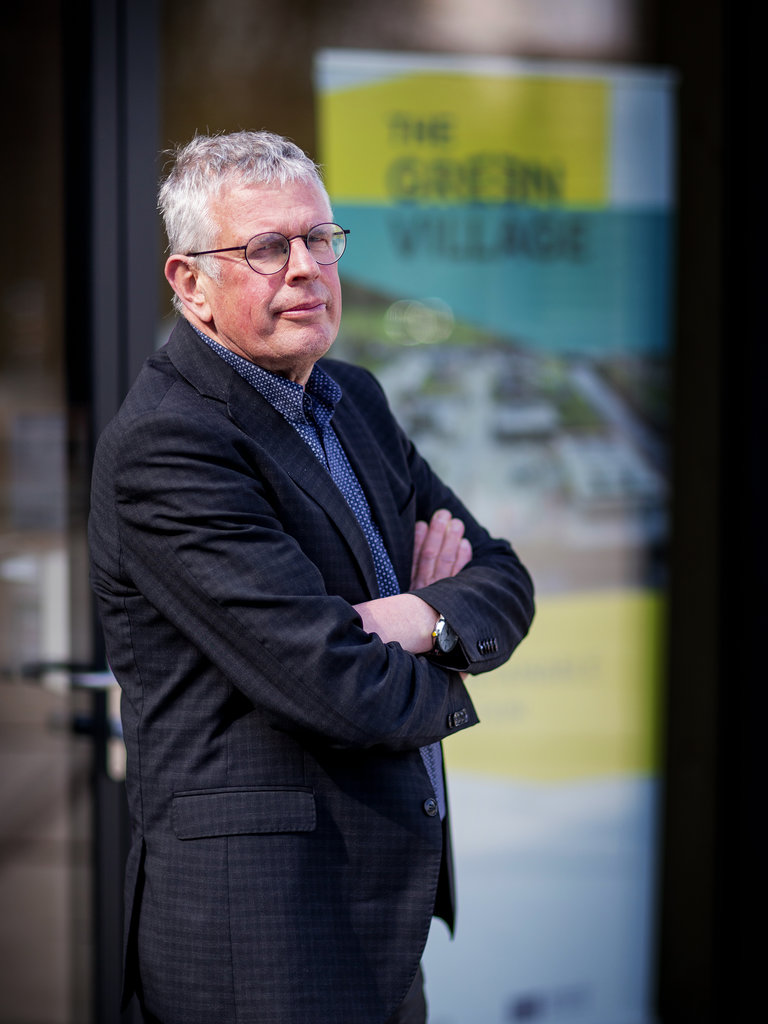
By: Paul Althuis
At TU Delft, around 1,000 scientists are working on the shift towards a sustainable energy supply. In order to ensure it makes a real impact, the university is investing heavily in innovation. In the next year, seven Future Energy Labs are being further developed to enable the rapid adoption by society of new and promising technologies and applications, writes Paul Althuis, director of the TU Delft Innovation & Impact Centre.
“By definition, the energy transition means that we have to think big. Because the task we face is a big one. Ultimately, this is a climate problem and the energy transition is an essential process in our attempt to curtail global warming. This urgency calls for leadership, not only in identifying solutions (fundamental research), but also in terms of the next step: ensuring that society can quickly reap the benefits (valorisation).
“Thinking big also involves the need to integrate. This university is the perfect place for a grand vision, focused on system integration. In the energy transition, that will be essential in achieving success since it affects the whole of society and we need to design totally new, sustainable energy supply chains. With interaction between molecules, electrons and heat as energy carriers. From generation, conversion, storage, transport through to end-user. And the energy market that is part of all that.
This university is the perfect place for a grand vision, focused on system integration.
“In order to accelerate innovation in the field of energy, we are creating seven Future Energy Labs (see box) focused on the themes that we expect to be working on in the long-term and in which TU Delft can play a leading role. This includes the development of a local, CO2-neutral energy system for the built environment (24/7 Energy Lab) or future-proofing the electricity grid (the recently opened ESP Lab).
“As part of the innovative ecosystem on TU Delft Campus, the Future Energy Labs will collaborate closely with the field labs. A good example is the 24/7 Energy Lab, that is being launched this month. Several faculties were already working on the question of what an autonomous, sustainable energy system will look like. Potential solutions are currently being tested in The Green Village.
“If the 24/7 Energy Lab proves successful, we will still not have achieved our goal. It will not yet provide sufficient proof that this approach will be able to supply a complete residential district with locally generated renewable energy. It is only one step in the upscaling process. But, despite this, it is the small-scale applications that will demonstrate how to make progress in the overall process.
“The Future Energy Labs can become a visible link in the chain of innovation. Take 24/7 Energy Lab: it will be an important eye-catcher on TU Delft Campus to demonstrate to the world what is actually practically possible in terms of the energy transition.”
“The Innovation & Impact Centre will play a facilitating role for the labs: we will explore the possibilities, help to secure funding, bring the right people together and take care of things behind the scenes.
“We are also ensuring that the business community gets involved and co-funds these labs. Their involvement will be essential in order to accelerate the energy transition. If you want to ensure that new and promising innovations reach society and end-users, you are more likely to be successful if the business community and other social partners are involved from the outset. They have unparalleled understanding of the conditions that new technology will need to meet to ensure they can actually be deployed and make a real impact.”
Seven Future Energy Labs
- 24/7 Energy Lab. The development of a local, CO2-neutral energy system for the built environment.
- Campus Geothermal Well. The development of and research into a renewable source of energy based on geothermal heat at TU Delft Campus.
- e-Refinery Centre. The development of sustainable fuels and chemical products.
- ESP Lab. Readying the Dutch electricity grid for the future.
- Floating Renewables Lab. The design and engineering of the next-generation offshore renewable energy systems
- Power & Heat Generation Lab. Converting energy in the form of chemical bonds into electricity or power, capturing and putting as much of the released heat to good use
- TPM Energy Transition Lab. Quantifying and modelling different kinds of human aspects related to the energy transition